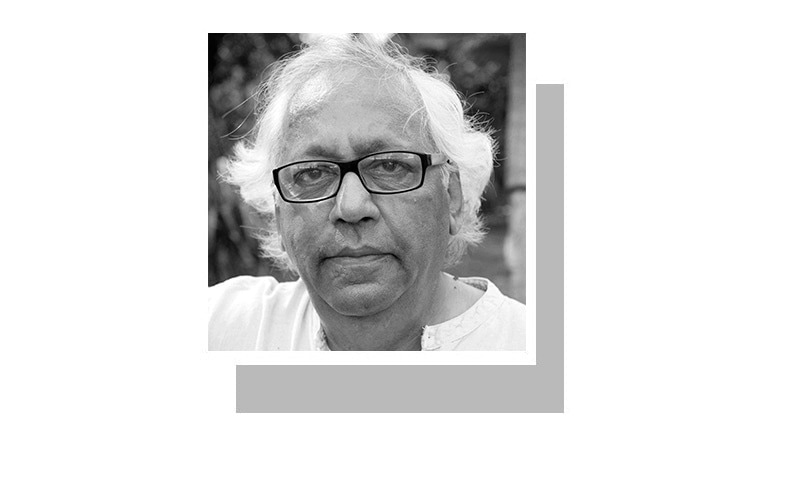
DURING England’s cricket tour of Pakistan in the winter of 1983-84, the legendary all-rounder Ian Botham made this famous jibe: “Pakistan is a place every mother-in-law should be sent for a month.”
His remark caused an uproar in the land, with furious editorials and denunciations that rippled across the press. Luckily, we were not blessed with social media in those days, or we might still be discussing Botham’s caustic crack.
And mind you, this was long before terrorism made Pakistan a no-go country, not just for visiting cricket teams, but for foreigners generally. Now, of course, thousands of deaths and hundreds of jihadist attacks later, it would take a brave visitor to get on a flight to Pakistan.
Against this backdrop, I was surprised to hear Asad Umar, who will probably be the incoming government’s finance minister, holding forth about the possibility of attracting millions of tourists to the country. Talking to an audience of the party faithful and outlining Imran Khan’s vision of creating jobs and earning foreign exchange, he expanded on our country’s beauty and the hospitality of its people.
As we dream of attracting tourists to the country, how are our neighbours doing?
All this is true. However, tourists don’t come just to look at natural beauty, historical sites and archaeological treasures. They also want to have fun. And frankly, Pakistan, for foreigners anyway, is not a fun place. Apart from the warnings issued periodically by governments, and the reluctance of insurance companies to cover travellers to Pakistan, who wants to be a potential target for kidnappers or militants?
Granted, you would have to be unlucky to be caught up in a terrorist atrocity, but how many would take the risk, especially if they are going on holiday with their families? Intrepid mountaineers do undertake the journey to climb our spectacular peaks, but then, they are risk-takers by definition.
There was a time when many foreign tourists visited our bazaars and our historical monuments. But Bhutto’s prohibition and Gen Zia’s Islamisation contributed to curbing this traffic. Public flogging under martial law is enough to deter the hardiest traveller.
In our region, other Muslim countries manage to attract foreigners. Dubai has positioned itself as a shopping destination as well as a real estate haven. Businessmen flock to Saudi Arabia to make money, not to admire the beauty of the kingdom. Iran attracts discerning travellers who go there for the stunning beauty of the country’s ancient buildings. The one thing they all have in common is almost complete security from jihadist attacks.
Other Muslim countries that have successfully wooed the tourist trade include Turkey, Morocco, Tunisia and Malaysia, among others. Their governments realise that in order to attract foreigners, they need to be flexible and relax their rules. Partly as a result, millions of tourists flock there.
I am not for a moment suggesting a repeal of prohibition. However, a drink or two is central to life in most non-Muslim countries. Pubs and bars are convivial places where friends meet for a drink in the evening.
Here, well-off Pakistanis who imbibe can just pick up the phone and ask their bootlegger to deliver their favourite tipple. And while the rich denizens sip their Chivas, farmers in Sheikhupura and other rural areas make do with homemade hooch distilled from sugarcane juice.
Meanwhile, as we dream of attracting tourists to the country, how are our neighbours doing? India, with its formidable soft power and international appeal, pulled in over 10 million tourists last year. Sri Lanka, which is a small island with a population of just 21m, received 2.1m visitors. Nepal attracted nearly 1m. Bangladesh welcomed around 700,000. The Maldives hosted 1.4m in 2017. Even tiny Bhutan — which caters only to well-off visitors — received 250,000 tourists.
Pakistan, sadly, had less than a million visitors who ticked the ‘tourist’ box on their visa forms. We currently stand at 124 out of 136 countries on the Tourism Competitiveness list, and the fact that the average ‘tourist’ only spends $328 on a visit makes me suspect that these numbers are largely made up of expats of Pakistani origin returning to their homeland for a wedding or a holiday. They would thus be staying with friends or family, and not spending much on hotels or shopping.
So I am afraid that if the tourism industry is one plank of the PTI job-creating and income-generating strategy, Asad Umar and Imran Khan will have to do some serious thinking about security and the country’s laws. Perhaps a team could be sent to Sri Lanka to learn how to attract tourists….
Published in Dawn, August 18th, 2018











































